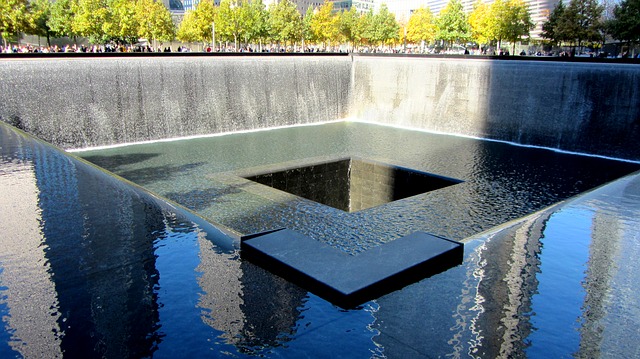The holiday season is a wonderful time of year for professional musicians—a time of anticipation. It means more gigs paying better money. It is a procession of company holiday parties, Christmas pageants, and concerts in houses of worship and concert halls. The spillover of holiday bustle into the live music bars and nightclubs, and the good cheer that builds from Thanksgiving week toward the revelry of New Year’s Eve, help musicians finish the year with more bread on the table.
For many of us, because our work—our music—has taken us to a better place both artistically and economically, we are optimistic about the year ahead.
Fast forward to Fort Worth, Texas, where this holiday season, musicians of the Fort Worth Symphony Orchestra (FWSO) are working under an expired contract and battling the town honchos’ flatfooted attempts to impose unjustified concessions, made to compensate for inept management and to quench the thirst for additional rent and a bigger cut of ticket sales by their landlord, the Nancy Lee and Perry R. Bass Performance Hall.
For FWSO musicians, the 2015 holiday season is playing out against a backdrop of uncertainty and in an atmosphere of animosity and bitterness, where management wants to force a 9% wage cut, on top of a 13.5% cut imposed in 2010. Other difficult situations are occurring with orchestras located in Hartford, Connecticut; Binghamton, New York; Grand Rapids, Michigan; and Fort Wayne, Indiana. But for me, because of my history in Fort Worth, the doings in Cowtown are personal.
Never mind that the Dallas-Fort Worth economic engine is revving despite a slump in oil prices. The area has added 400,000 jobs since the great recession. The DFW economy reached $440 billion in 2014, ranking sixth in the nation and outranking most countries in the world, trumped in gross product estimates by only 17 of the world’s 196 economies.
Sounds great, doesn’t it? Great for everybody, except for the musicians of the Fort Worth Symphony Orchestra. With all that money flying around, you wouldn’t think the town would load up and take aim at an incredible orchestra that is playing at the top of its game, would you? But that’s what they’re doing.
As with many disputes that have erupted recently with orchestras that are venue-specific, some money woes can be traced to the demands of the concert hall itself.
For FWSO, the answer lies somewhere in the netherworld between the company’s mythical financial tailspin (a $600,000 deficit is alleged) and its murky dealings over the occupancy expenses and operation of its rehearsal and concert venue, Bass Performance Hall. That venue’s stated mission is “to serve as a permanent home to major performing arts organizations of Fort Worth and as a premiere venue for other attractions so as to enhance the range, quality, and accessibility of cultural fare available to the public; to promulgate arts education; and to contribute to the cultural life of Fort Worth, Tarrant County, and the region.”
In Cowtown, when you talk the talk, you gotta walk the walk, except if you’re Bass Hall. The venue threw its mission statement in the toilet in 2009 when Texas Ballet Theater, a resident company, was permitted to dump FWSO as its pit orchestra and perform a six-week season to tape, including a tape made in China at a cost of $30,000. Was that cultural enhancement? Hardly. It was pure horse hockey. It cost FWSO a six-week pay cut.
Bass Hall was built in 1997-1998 on land donated by the Bass family at a cost of $74 million in private funds. In contrast, the Ballpark in Arlington cost $174 million. Today, Bass Hall total assets stand at $74 million. And the folks there always see to it that there is plenty of green to go around for the top hands’ salaries. President/CEO Dione Kennedy hauled off nearly $450,000 Texas buckaroos last year.
Against this background, the courageous members of the orchestra have chosen to do more than just bargain hard, while extending community outreach through social media. They are standing up and standing together, live and in-person, fighting management’s wrongheaded proposals by demanding that the company provide for the orchestra in a manner consistent with the artistic power they bring to every performance.
With the support of DFW Local 72-147, FWSO musicians have found innovative and effective new ways to demonstrate their resolve to oppose regression and deliver their message—GROWTH, NOT CUTS—directly to the audience and community.
Violist and negotiating committee chair Scott Jessup, flanked by his committee colleagues, surprised a Saturday night crowd October 24 when, immediately prior to the start of the performance, he read a statement that included the following:
“Going backward is not the Ft. Worth way and dishonors the legacy of one of our oldest cultural treasures. We ask you to stand with us to show our management that these musicians, and this city, deserve a world-class orchestra with a vision for our future that promotes GROWTH, NOT CUTS.”
A few days later, prior to a Friday evening concert, 60 FWSO musicians materialized in Sundance Square, a cluster of upscale eateries and shops adjacent to the venue, and delivered an impromptu flashmob performance of Barroso’s samba, “Brazil.” The demonstration brought the contract dispute front and center to Sundance shop owners and directly to the eyes and ears of consumers whose discretionary spending is vitally important to the neighborhood, particularly when FWSO concerts occur at Bass Hall.
It appears that Fort Worth Orchestra musicians are demonstrating to management, their neighborhood, their community, and other orchestras throughout Federation land that they will do much more in the face of adversity than previously done. Their actions are those of a musicians’ union in the truest sense. For that, we owe them a debt of gratitude and our thanks and support for showing us the way. For current information about the state of FWSO negotiations, visit www.FWSOmusicians.com.
Best wishes for a happy holiday season and a healthy and productive New Year!



